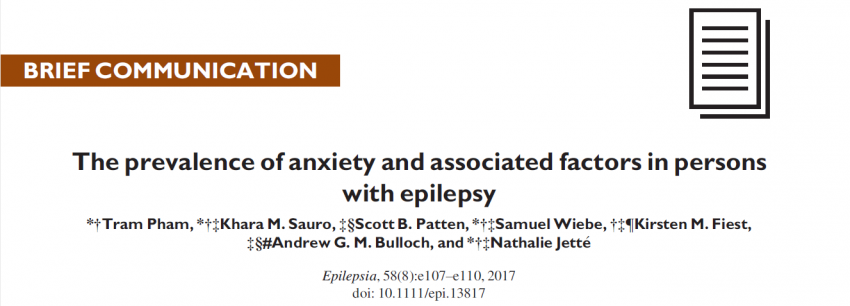This is a study from 2017 that used data from the Neurological Disease and Depression Study. [1]
Of the total sample (n = 250 patients), nearly 40.0% of participants had anxiety according to the Hospital Anxiety and Depression Scale. The most prevalent symptom of anxiety was “worrying thoughts” (35.6%). After adjustment for age and sex, depression (odds ratio [OR] = 8.97, 95% confidence interval [CI] = 4.38–18.40), medication side effects (OR =1.79, 95% CI = 1.04–3.05), smoking (OR = 4.35, 95% CI = 2.27–8.31), and illicit substance use (OR = 2.42, 95% CI = 1.18–4.96) were significantly associated with higher odds of anxiety, whereas higher education (OR = 0.47, 95% CI = 0.28–0.80) was associated with lower odds of anxiety. Furthermore, participants with anxiety reported more severe epilepsy, debilitating seizures, and overall lower quality of life.
1 Pham T, Sauro KM, Patten SB, et al. The prevalence of anxiety and associated factors in persons with epilepsy. Epilepsia 2017;58:e107–10. doi:10.1111/epi.13817


